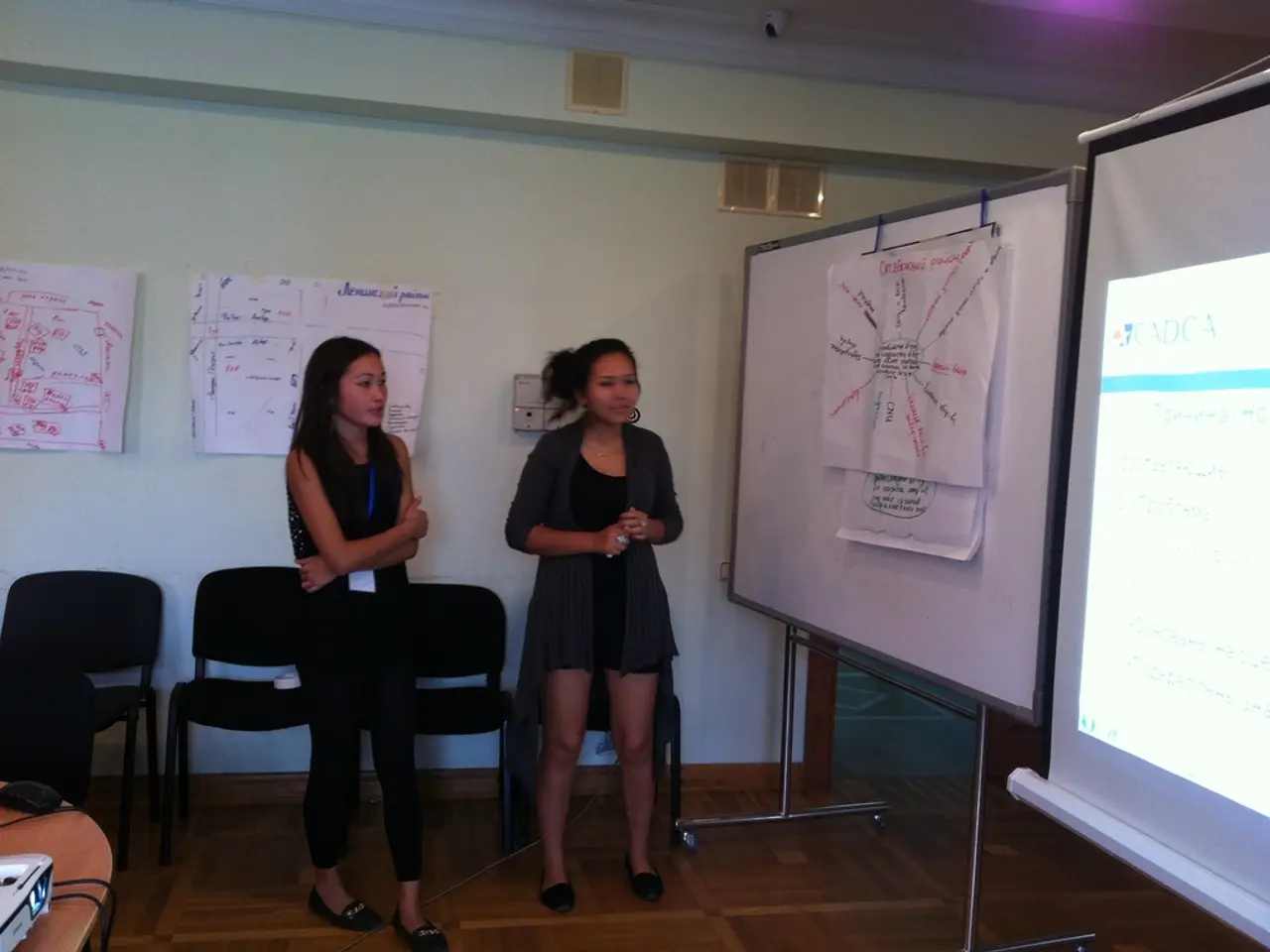Local official pushes for genuine agitation within the nation
In the rapidly evolving digital landscape, companies are increasingly recognising the importance of adapting to the mindset and values of the younger generation, particularly Generation Z. This demographic, characterised by a strong inclination towards flexibility, autonomy, digital creativity, and skepticism of traditional career paths, is shaping the future of the workforce.
To attract Gen Z young talent, businesses must embrace several key strategies. Firstly, they must reject traditional education and career paths, acknowledging that about 44% of Gen Z view college degrees as ineffective for workforce success. Enrollments are dropping due to shifting priorities and the rise of gig roles.
Secondly, companies should embrace the gig economy and flexibility. Gen Z prefers gig and freelance roles, thriving in dynamic, unpredictable markets that allow autonomy and multiple income streams. The gig economy is growing three times faster than traditional jobs due to this generation's adaptability.
Thirdly, businesses should support digital-native creativity and AI use. Nearly 89% of Gen Z identify as creators, leveraging AI tools to monetize their skills, bypassing traditional gatekeepers. Over half of them demand AI training and upskilling from employers to bridge their skills gap.
Fourthly, authenticity and purpose alignment are crucial. Gen Z values brands and employers that demonstrate real authenticity, inclusivity, and alignment with their social and cultural values. They want employers to support personal growth and passion projects, not just vague ‘learning cultures’.
Fifthly, companies must provide support for continuous learning and innovation. Gen Z expects companies to provide subsidized upskilling, flexible development tracks, and tools for talent growth that cater to digital skills and the rapidly evolving economy, particularly with AI.
Lastly, Gen Z favours direct, no-nonsense communication. Companies should aim for straightforward interactions over performative norms, reflecting their digital-first mindset and desire for authenticity at work.
These strategies were emphasised at a recent economic reception in Neustadt/Ehrenberg, Germany, where Landrat Achim Hallerbach and Sven Eßwein both underscored the importance of digitalization in the economy and the need to adapt to the changing values and mindsets of younger generations. The event, organised by the Sparkasse Neuwied, the Rhein-Zeitung, the Süwag AG, and the Syna, brought together approximately 250 guests, including the AH-Singers from the DJK Fernthal, the Master Craftsman of the district, Ralf Winn, and IHK Regional Manager Kristina Kutting.
Esswein, an education expert from Baden-Württemberg, called for the new digital mindset of Generation Z to be utilised by companies for attracting skilled workers. He emphasised the importance of understanding the mindset and worldview of young people.
In conclusion, the economic future lies in embracing the unique qualities and values of Generation Z. By investing heavily in AI and digital skills training, offering flexible, gig-like career structures, supporting personal brands, side hustles, and creative entrepreneurship, building inclusive, authentic workplace cultures, providing clear, practical learning tools and career development paths, and favouring direct, no-nonsense communication, companies can attract and retain the talented young minds that will drive the economy forward.
In the context of attracting Gen Z talent, businesses must prioritize learning and innovation, offering subsidized upskilling, flexible development tracks, and tools for talent growth that cater to digital skills and the rapidly evolving economy, particularly with AI. Moreover, firms should favor direct, no-nonsense communication that aligns with Gen Z's digital-first mindset and desire for authenticity at work.




